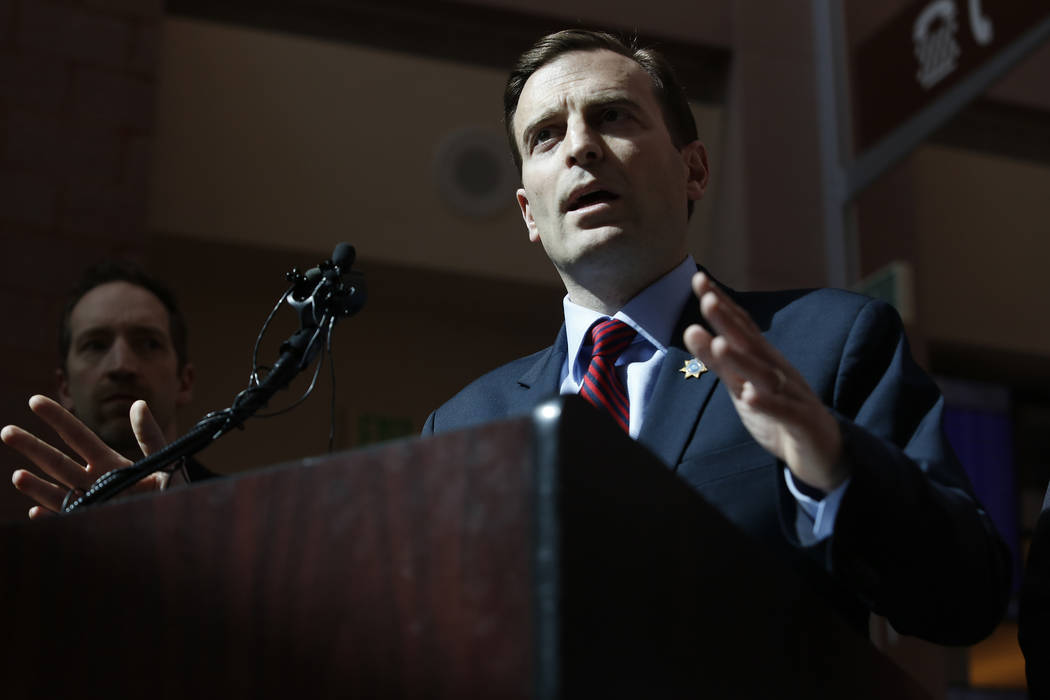
Nevada Attorney General Adam Paul Laxalt led a 10-state coalition of attorneys general in filing a friend-of-the-court brief in the U.S. Supreme Court defending the ability of state governments to effectively regulate groundwater usage within their state, his office announced.
The brief urges the court to review a recent Ninth Circuit decision that concluded, in conflict with multiple state-court decisions, that the federal government has broadly reserved rights to groundwater that preempt long-established state-law regulations.
As Nevada’s brief explains, the Ninth Circuit’s ruling threatens serious disruption not only to settled expectations in the Western states like Nevada, but also to states across the nation.
“Western states like Nevada are particularly impacted by the current uncertainty of groundwater rights created by this recent Ninth Circuit decision,” Laxalt said in a statement. “By filing this brief, my office encourages the Supreme Court to take the necessary steps to clarify the states’ groundwater rights and to ensure Nevada’s best interests are being protected from unnecessary and unwarranted federal interference.
“As I have consistently demonstrated throughout my tenure as Nevada’s attorney general, my office stands ready to defend our state from unlawful federal overreach regardless of the source,” Laxalt said.
Laxalt’s office provided these details of the case:
■ The Coachella Valley Water District and Desert Water Agency are public water agencies that regulate and provide water in the Coachella Valley of Riverside County, California. These public water agencies primarily rely on groundwater reserves to supply water to public and private entities in their jurisdiction, including the city of Palm Springs.
■ The Agua Caliente Band of Cahuilla Indians is a federally recognized Indian tribe with a reservation of land in the Coachella Valley. Like other public entities in the Coachella Valley, the tribe has purchased water for its needs from the public water agencies, and has not historically pumped groundwater for its own use.
■ In 2013, however, the tribe brought suit in federal court claiming that, as part of its federal reservation of land, it has a priority right to use groundwater in the Coachella Valley.
■ Relying on Supreme Court cases involving implied reservations of surface water rights, the Ninth Circuit Court of Appeals held that a priority right to use groundwater under federal reserved land is also included as an implied right with the reservation, and that that right necessarily preempts state water law, even if there is no evidence that anyone ever used or expected to use groundwater when the federal reservation was made.
■ Nevada’s brief explains how the Ninth Circuit’s decision creates significant uncertainty for all states, which have historically controlled water resources within their state. The brief encourages the Supreme Court to clarify whether the federal reserved water right doctrine extends to groundwater and, if so, under what circumstances, so as to provide guidance to all states, including Nevada, on how to manage their groundwater resources.
Nevada is joined by the following states in the filing of this brief: Arizona, Arkansas, Idaho, Nebraska, North Dakota, South Dakota, Texas, Wisconsin and Wyoming.